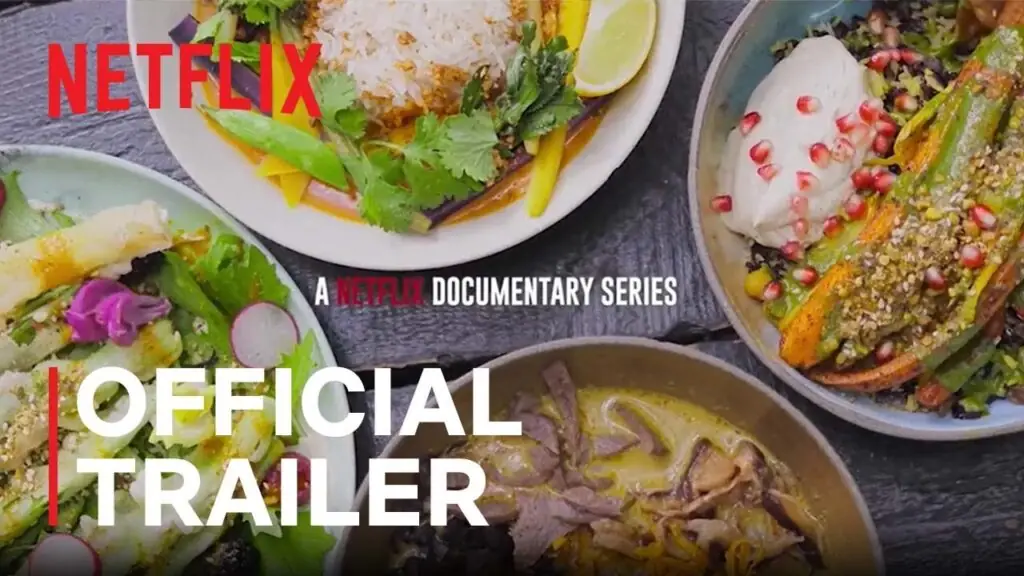In a groundbreaking revelation for diet enthusiasts and health-conscious individuals, Netflix’s latest documentary series ‘You Are What You Eat’ delves into the profound impact of vegan diets on human health. Based on a pivotal study of identical twins, this series, reported by Green Queen, showcases the far-reaching benefits of plant-based nutrition.

✅ AI Essay Writer ✅ AI Detector ✅ Plagchecker ✅ Paraphraser
✅ Summarizer ✅ Citation Generator
The documentary, directed by acclaimed filmmaker Louie Psihoyos, commenced streaming on New Year’s Day, aptly coinciding with Veganuary. Drawing from a Stanford study, ‘You Are What You Eat: A Twin Experiment’ compares the health outcomes of twins on vegan and meat-based diets. This study, incorporating 22 pairs of identical twins, aimed to mitigate genetic and lifestyle differences in assessing diet impacts, particularly focusing on cardiovascular health.
Featuring vegan cheese icon Miyoko Schinner, Impossible Foods’ Pat Brown, culinary maestro Daniel Humm, Senator Cory Booker, and other notable personalities, the series spans four episodes. It insightfully covers the Stanford study, dietary struggles, and triumphs of the twins, queries on dietary guidelines, plant-based cooking, and the research’s significant findings.
Pivotal Findings of the Stanford Study
The Stanford research, which has been public for over a month, juxtaposed whole-food plant-based diets against omnivorous diets including meat, dairy, and other animal products. Key findings revealed that participants on vegan diets exhibited lower levels of LDL cholesterol, insulin, and body weight, all critical markers for cardiovascular health.
Initial LDL cholesterol levels averaged 110.7 mg/dL for vegans and 118.5 mg/dL for meat-eaters. By the study’s end, these figures shifted to 95.5 for vegans and 116.1 for meat-eaters. Vegan participants also showed a 20% reduction in fasting insulin levels and a weight loss of 4.2 lbs (1.9kg) more than their omnivorous counterparts.
“These results, along with longevity considerations, suggest that most of us would benefit from a more plant-based diet.”
Christopher Gardner, lead author of the study, in an interview with CNN
Inside ‘You Are What You Eat’
The documentary critically evaluates the Standard American Diet, labeled as “SAD” by Gardner, highlighting its unhealthy reliance on processed foods, influenced by meat and dairy industry marketing. The series delves into various health aspects, including the misleading nature of BMI, body composition, microbial diversity, aging factors, and sexual health.

Notable nutritionist Michael Greger emphasized the significance of diet, comparing the cancer risks of processed meats to those of smoking and plutonium exposure. The series also features Daniel Humm, who revolutionized his New York eatery Eleven Madison Park with a predominantly plant-based menu. Humm also voices concerns about the sustainability and ethics of animal farming:
“The last five years have brought rapid changes to food quality and availability,”
Post-Experiment Dietary Changes
The series also follows the dietary journey of the twins post-experiment. While all began as omnivores or pescetarians, their meat consumption has notably declined. Charlie, previously a pescetarian, has transitioned to a nearly complete vegetarian diet. These shifts are attributed to concerns over climate change, animal welfare, worker and food safety, and personal health.
The Stanford research outcomes surprised even the researchers, with a vegan diet linked to increased life expectancy, reduced visceral fat and heart disease risk, and enhanced sexual drive. “Rethinking our food choices can address numerous issues harming us and our planet,” Gardner concludes.
Discuss the Series and Healthy Eating in an Essay
After diving into the fascinating insights from Netflix’s ‘You Are What You Eat’, it’s clear that there’s so much more to talk about than just what we put on our plates. This show doesn’t just change how we think about food; it opens up a whole world of interesting topics we can explore. From the health benefits of a vegan diet to its impact on the planet, and even how it makes us feel emotionally and socially, there’s a lot to unpack.
If you’re curious like I am, you’ll find these essay topics super engaging. They’re not just for those who love science or care about health; they’re for anyone interested in how the food we eat touches every part of our lives. Let’s dive into these topics together and see what new things we can discover about the food we eat and the choices we make. Who knows, we might just find some surprising answers to questions we didn’t even know we had!
| Topic Area | Essay Topic | Focus of Discussion |
|---|---|---|
| Health Benefits | The Impact of Vegan Diets on Cardiovascular Health | Examining how vegan diets influence heart disease risk factors like cholesterol and blood pressure. |
| Nutrition Science | Comparing Nutritional Values: Vegan vs. Omnivore Diets | Analyzing the nutritional completeness and deficiencies in vegan diets compared to omnivorous diets. |
| Ethical Considerations | Ethical Implications of Veganism vs. Meat Consumption | Discussing the moral aspects of veganism, including animal welfare and environmental sustainability. |
| Psychological Aspects | The Psychological Effects of Dietary Choices on Health and Lifestyle | Exploring how transitioning to veganism affects mental health, lifestyle changes, and societal perceptions. |
| Environmental Impact | Assessing the Environmental Footprint of Vegan Diets | Investigating the environmental benefits and potential drawbacks of widespread adoption of vegan diets. |
| Culinary Evolution | The Transformation of Culinary Practices in Response to Veganism | Examining how restaurants and home cooking are adapting to the increasing popularity of vegan diets. |
| Policy and Public Health | The Role of Government and Public Health in Promoting Plant-Based Diets | Analyzing the potential policies and public health campaigns to encourage plant-based eating for health benefits. |
| Personal Narratives | Personal Journeys: Transitioning to a Vegan Lifestyle | Personal accounts of individuals transitioning to a vegan diet and the challenges and benefits they experienced. |
| Medical Research | The Stanford Study: Methodologies and Implications for Future Research | A critical analysis of the research methodology of the Stanford study and its implications for future dietary research. |
| Social Dynamics | Social and Cultural Perspectives on Veganism | Exploring how veganism is perceived and integrated within different cultures and social settings. |
Follow us on Reddit for more insights and updates.





Comments (0)
Welcome to A*Help comments!
We’re all about debate and discussion at A*Help.
We value the diverse opinions of users, so you may find points of view that you don’t agree with. And that’s cool. However, there are certain things we’re not OK with: attempts to manipulate our data in any way, for example, or the posting of discriminative, offensive, hateful, or disparaging material.